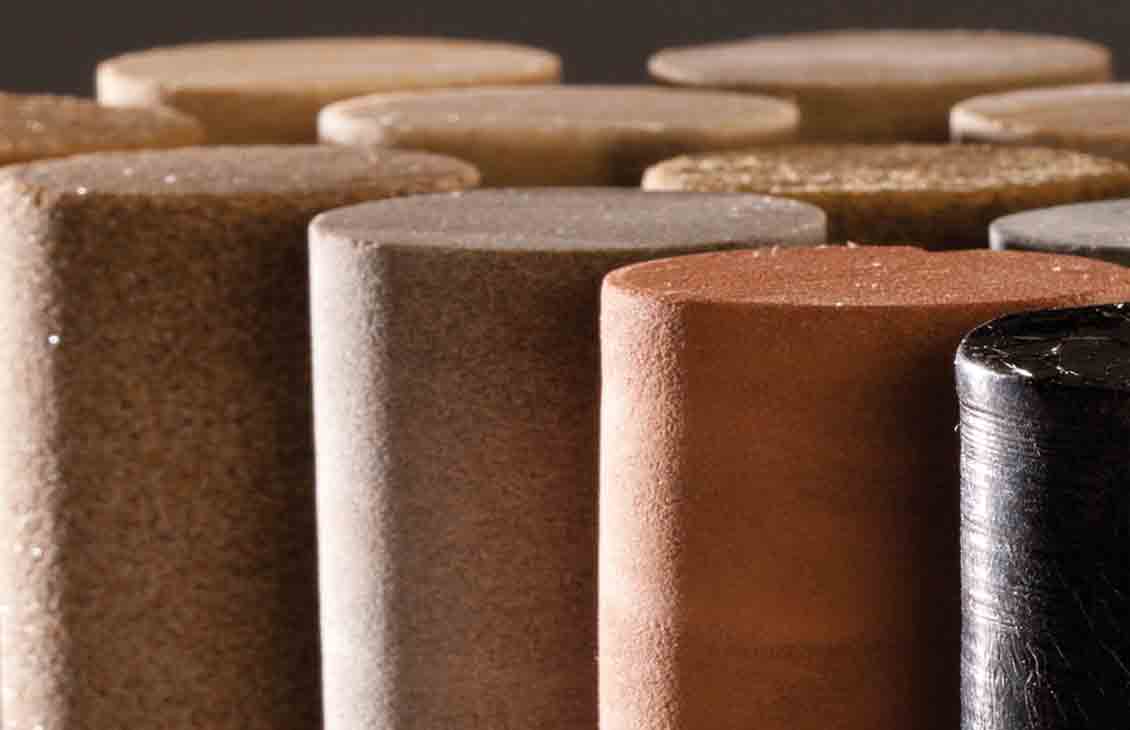API RP 62 Recommended Practice for Electrical Resistivity Testing of Rock Cores
The API RP 62 Recommended Practice provides detailed guidance on how to perform electrical resistivity testing (ERT) on rock cores. This practice is crucial in the oil and gas sector as it helps understand reservoir properties, evaluate fluid flow, and predict production performance. The primary focus is on measuring the electrical conductivity of core samples which can indicate the presence of fluids within the rock matrix.
Electrical resistivity testing involves passing an electric current through a small section of the core and measuring the voltage drop across it. This measurement helps determine how well electricity flows through the core material, which in turn provides insights into pore space distribution, fluid content, and lithology type. The results are used for reservoir characterization and drilling optimization.
The recommended practice specifies that the testing should be done under controlled conditions to ensure accurate and reliable data. It outlines best practices for sample preparation, including minimizing contact between core pieces during handling, ensuring uniform moisture content, and avoiding contamination with foreign substances. Proper sample preparation is critical as it affects the accuracy of resistivity measurements.
Testing should be conducted using appropriate instrumentation that meets the standards set out in API RP 62. Commonly used devices include four-electrode systems where two electrodes are placed on either end of the core piece and the other two provide current injection and voltage measurement points respectively. The practice also recommends regular calibration of equipment to maintain precision.
After testing, detailed reports must be generated documenting all aspects including sample identification, experimental setup details, raw data collected during the test, calculated resistivity values, and interpretations based on these findings. These reports serve as valuable tools for decision-making processes related to exploration activities and production strategies.
The importance of this recommended practice cannot be overstated given its role in optimizing drilling operations by providing precise information about potential hydrocarbon reservoirs. By following the guidelines outlined in API RP 62, operators can enhance their understanding of geological formations leading to more effective extraction methods while reducing environmental impact through targeted interventions.
For quality managers and compliance officers responsible for ensuring adherence to industry standards, this recommended practice offers a clear pathway towards meeting regulatory requirements related to core analysis. Similarly, R&D engineers involved in developing new technologies aimed at improving drilling efficiency will benefit from implementing these practices as they form part of the fundamental knowledge required for advancements.
Compliance with API RP 62 ensures that data obtained through electrical resistivity testing is consistent and comparable across different projects and organizations. This consistency allows for better comparisons between various locations, enhancing overall project planning and execution.
Why It Matters
The significance of following the API RP 62 Recommended Practice extends beyond mere compliance; it plays a pivotal role in optimizing drilling operations by providing accurate information about geological formations. This leads to more effective extraction methods which not only increase productivity but also reduce environmental impact through targeted interventions.
Enhances understanding of geological formations leading to improved decision-making processes related to exploration activities and production strategies.
Provides consistent data across different projects and organizations, facilitating better comparisons between various locations.
Ensures that the testing process is conducted under controlled conditions ensuring accurate and reliable results.
Promotes best practices for sample preparation including minimizing contact between core pieces during handling, ensuring uniform moisture content, and avoiding contamination with foreign substances.
Regular calibration of equipment maintains precision which is crucial given the small variations in resistivity values that can indicate significant changes in rock properties.
In essence, adherence to API RP 62 not only ensures regulatory compliance but also supports sustainable practices by minimizing waste and optimizing resource utilization. For quality managers, compliance officers, R&D engineers, and procurement personnel involved in oil & gas operations, this recommended practice serves as a cornerstone for effective core analysis.
Quality and Reliability Assurance
Ensuring the accuracy and reliability of electrical resistivity testing results is paramount. Here are some key measures to maintain high standards:
Regular calibration of instruments according to manufacturer specifications.
Consistent sample preparation techniques to minimize variability in test outcomes.
Use of standardized protocols for data collection and analysis.
Inclusion of quality control checks at various stages of the testing process.
The use of advanced analytical software can further enhance reliability by automating calculations and comparisons against historical datasets. Additionally, participating in inter-laboratory studies allows laboratories to verify their results against those from other reputable institutions ensuring consistent performance across diverse environments.
Implementing these quality assurance measures helps maintain trust among stakeholders involved in oil & gas projects. It ensures that the data generated through electrical resistivity testing can be relied upon when making crucial decisions regarding resource allocation and operational strategies.
Customer Impact and Satisfaction
The implementation of API RP 62 has a direct positive impact on customer satisfaction within the oil & gas sector. By providing accurate, reliable, and consistent data about reservoir properties, it enables customers to make informed decisions that optimize drilling operations.
For quality managers and compliance officers, following this recommended practice ensures regulatory compliance while enhancing overall project planning and execution. This leads to reduced risks associated with non-compliance penalties or delays caused by incorrect assumptions based on insufficient or inaccurate data.
R&D engineers benefit from having a solid foundation of reliable core analysis results which can be used as benchmarks for developing innovative technologies aimed at improving drilling efficiency. They gain access to detailed information about different geological formations allowing them to tailor their approaches specifically for each project, resulting in more efficient and effective solutions.
Customers who rely on third-party laboratories for core analyses will appreciate the consistent quality of services provided by adhering to API RP 62 guidelines. This consistency allows clients to trust that they are receiving accurate information every time they request testing services, leading to greater satisfaction levels overall.





